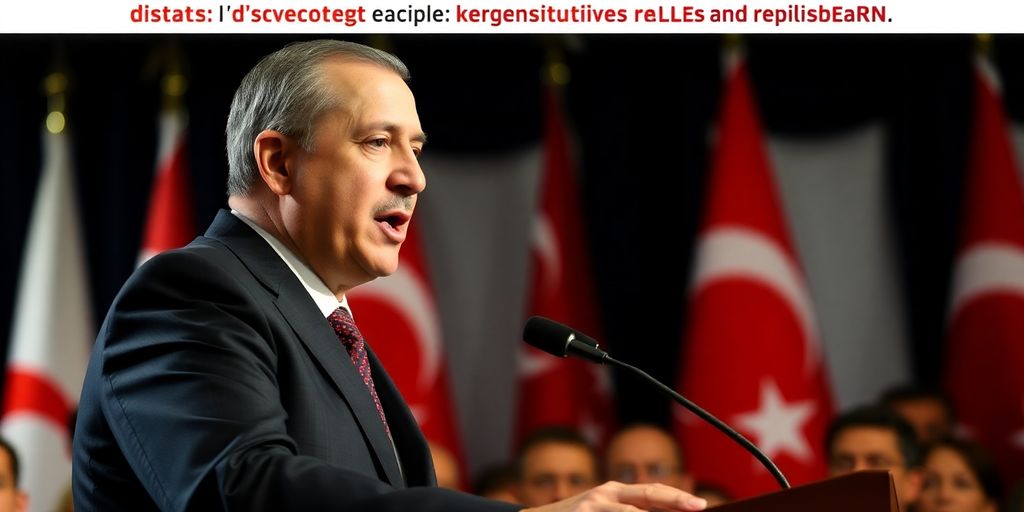Turkey’s President Recep Tayyip Erdogan has firmly denied any intentions to seek re-election, despite ongoing speculation regarding his political future and potential constitutional changes. Speaking to reporters, Erdogan emphasized his commitment to improving Turkey’s governance and called for a new constitution that reflects civilian perspectives rather than a military coup mentality.
Key Takeaways
- Erdogan has led Turkey for nearly 25 years, first as prime minister and then as president.
- He reiterated his pledge not to run for president again, stating, "I have no interest in being re-elected."
- Speculation about his political ambitions persists, especially following the arrest of his main rival, Ekrem İmamoğlu.
- Erdogan advocates for a new constitution, arguing the current one is outdated and rooted in a coup mentality.
Erdogan’s Long Tenure
Erdogan has been a dominant figure in Turkish politics since 2003, transitioning from prime minister to president in 2014. His leadership has been marked by significant political and economic changes, but also by increasing authoritarianism and crackdowns on dissent.
Despite his long tenure, Erdogan insists that he is not interested in extending his rule beyond the current term, which ends in 2028. He stated, "We want the new constitution not for ourselves, but for our country."
Constitutional Changes and Political Landscape
Erdogan’s call for a new constitution comes amid a backdrop of political turmoil, particularly following the arrest of Istanbul Mayor Ekrem İmamoğlu. İmamoğlu’s detention has sparked widespread protests and raised questions about the fairness of Turkey’s political environment. Many view his arrest as politically motivated, aimed at silencing a key opposition figure.
Erdogan’s recent comments suggest a desire to reshape Turkey’s constitutional framework, which he argues is outdated. He stated, "In such a rapidly changing world, is it possible to get anywhere with a constitution that was written under the conditions of a coup?"
Speculation About Future Elections
While Erdogan has publicly denied any plans to run for re-election, his actions have led to speculation about his true intentions. In January, he responded positively to a question about running again, which was later confirmed by his party’s spokesman, raising eyebrows among political analysts.
The current constitution limits presidents to two five-year terms, but Erdogan argues that his first term does not count under the new presidential system established in 2017. This has led to discussions about the possibility of early elections or constitutional amendments that could allow him to extend his presidency.
The Role of the Opposition
The opposition, particularly İmamoğlu’s party, has been vocal in its criticism of Erdogan’s government. They argue that the current political climate is repressive and that Erdogan’s attempts to change the constitution are self-serving. The deputy chairman of İmamoğlu’s party stated, "Erdogan had no chance of running again because of a constitution that he had designed himself."
As Turkey approaches the next election cycle, the political landscape remains uncertain. Erdogan’s insistence on constitutional reform and his denial of re-election ambitions will be closely scrutinized by both supporters and critics alike.
Conclusion
Erdogan’s recent statements reflect a complex interplay of political strategy and public perception. As he navigates the challenges of governance and opposition, the future of Turkey’s political landscape remains in flux, with many watching closely to see if he will indeed step back from the political stage or seek to maintain his grip on power.






